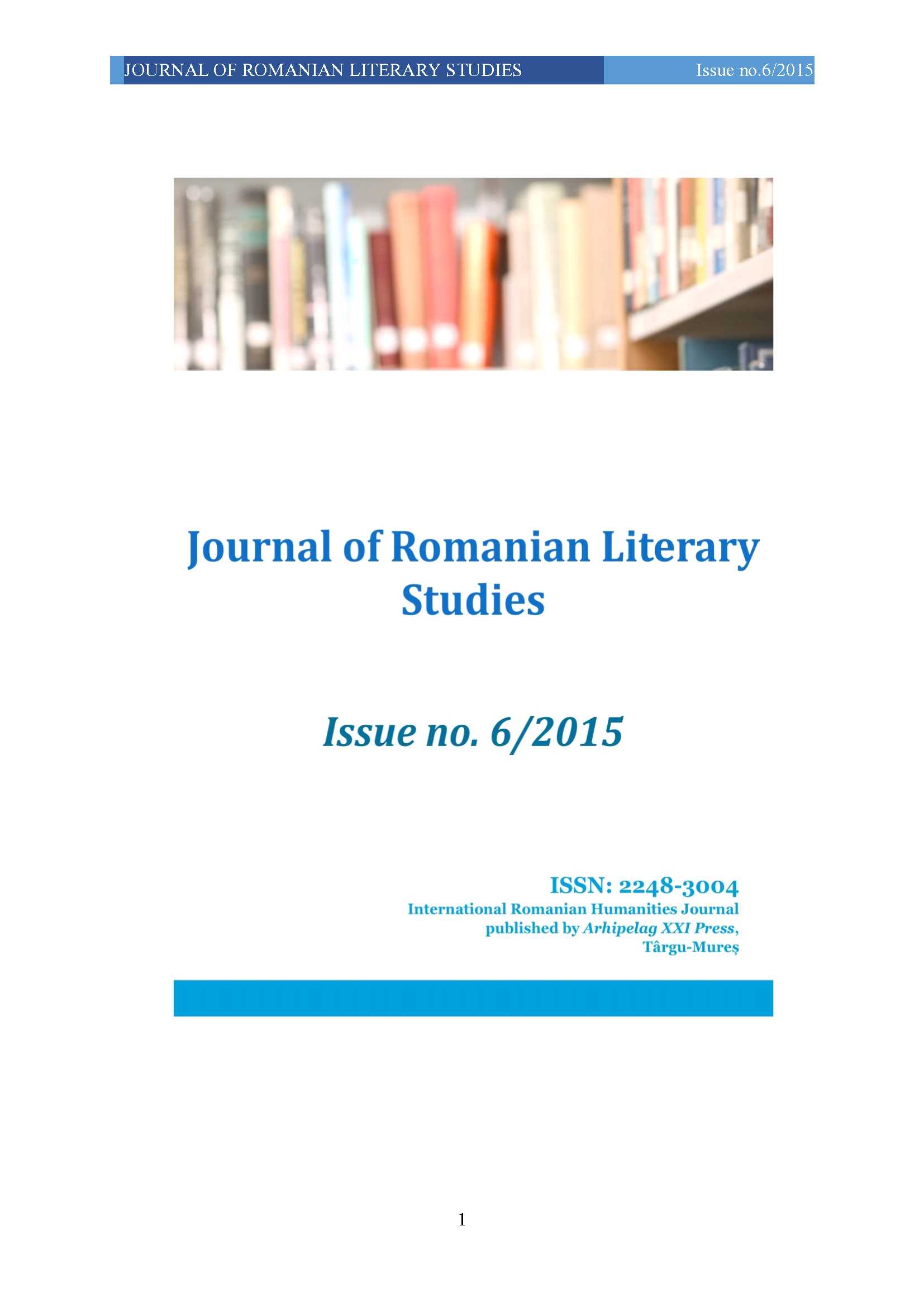DAS MOTIV DES WAHNSINNS IN DER DEUTSCHEN LITERATUR – VON GEORG BÜCHNER BIS PATRICK SÜSKIND (THE MOTIF OF MADNESS IN GERMAN LITERATURE- FROM GEORG BÜCHNER TO PATRICK SÜSKIND)
DAS MOTIV DES WAHNSINNS IN DER DEUTSCHEN LITERATUR – VON GEORG BÜCHNER BIS PATRICK SÜSKIND (THE MOTIF OF MADNESS IN GERMAN LITERATURE- FROM GEORG BÜCHNER TO PATRICK SÜSKIND)
Author(s): Simona Olaru-PoşiarSubject(s): Language and Literature Studies, Literary Texts
Published by: Editura Arhipelag XXI
Keywords: motif of madness; mental illness; German doctors/writers; Sebastian Brant; Georg Büchner; Gerhart Hauptmann; naturalism; Unica Zürn; Mann im Jasmin (Jasmine Man); Patrick Süskind
Summary/Abstract: The relationship between medicine and literature can be observed from more than one perspective and is sustained by a long tradition. Illness, physical or mental, pain, birth and death shall always be present in medical texts. Writers are doctors and doctors who were writers, the artist is a sufferer, he is ailing, and illness brings art to the light. However, we must not forget that literature is not medicine and can become only an instrument of therapy. An obsessive idea can be lived with a subjective certainty and can be struggled against very hard. A long list of doctors or men that have studied medicine, have, in time, also confirmed their literary value. A few examples from the world literature would be Archibald Jonathan Cronin (1896), Jonathan Keats (1795-1821), Francois Rabelais (1494-1553), Anton Tschechov (1860-1904), from the Romanian literature Aurel Baranga (1913), George Ulieru (1884-1943), Ion Cantacuzino (1863-1934), Ştefan Stinca (1865-1897). German literature proves to be nonetheless gifted in examples of doctors and men that have studied medicine and have later become known in the field of literature. We must remember to speak about Albrecht Haller (1708-1777), Friedrich Schiller (1759-1805), Georg Büchner (1813-1837), and nonetheless in the twentieth century - Arthur Schnitzler(1862-1931), Gottfried Benn(1886-1956), Friedrich Wolf(1888-1953), that have first and foremost distinguished themselves as writers and later on as doctors. One must not forget Bertolt Brecht (1898-1956) and Johannes Becher (1891-1958), who have studied medicine while writing literature. There are many examples of the conflict between the medical profession and the literary- writer’s vocation, illustrated in the works of the writers that were also doctors. Moreover these aspects are to be found in the works of Hans Carossa (1878-1956), as follows: “Das Jahr der schönen Täuschungen” (The Year of beautiful Illusions); “Das leidende Welt” (The world that suffers); “Führung und Geleit” (Behavior and Manner); “Die Schicksale Doktor Bürgers” (The Destiny of Doctor Bürger); novels in which one portrays mostly the hardships of the medical profession. “Who would become a doctor could he foresee the difficulties he were to face?” Goethe used to ask himself, as the critics of the time noted. There are many different perspectives and definitions for the mental disorder or madness, as it was in Middle Age referred to. From possession of the soul to the medical scientific definition, the illness of the soul and the wretchedness of the mind labyrinth have always been the key interests for doctors and moreover doctors that were also in the literary field. Naturalism offers us the best rendering of reality of the mad and all behavioural misconducts, the mental illnesses are roughly portrayed and no emotions are spared. Characters are scripted as patients are, all illnesses are described just like in a medical treaty and feelings are kept alive by vivid imagery.
Journal: Journal of Romanian Literary Studies
- Issue Year: 2015
- Issue No: 06
- Page Range: 1044-1052
- Page Count: 9
- Language: German

